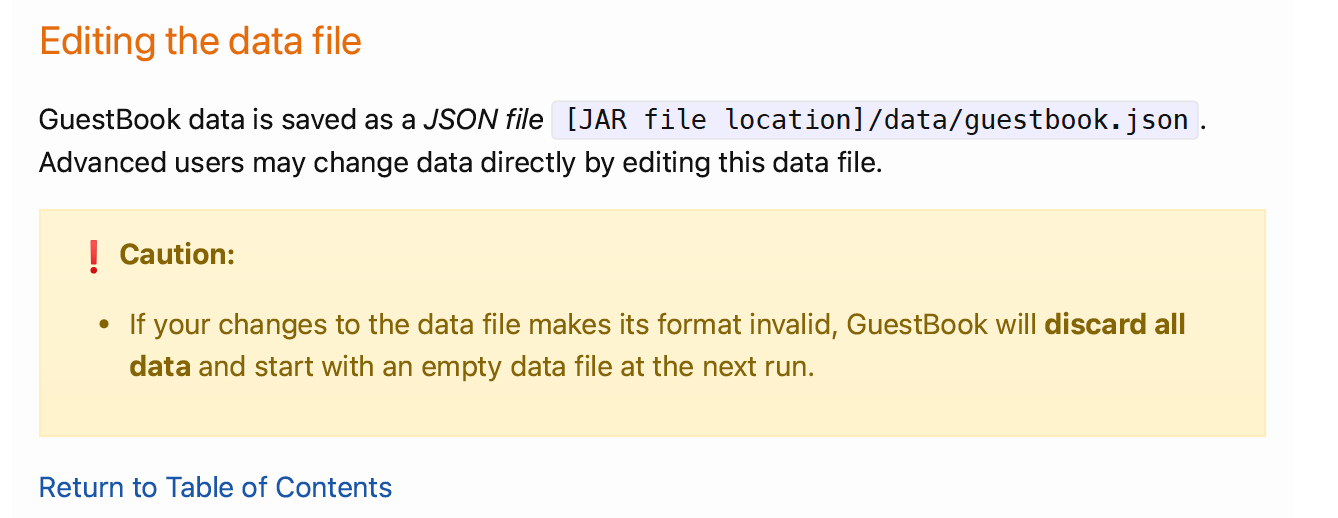

- Consider changing it to a different color to make your intent clearer
Open ShenyiCui opened 2 years ago


This is a duplicate issue. However, the titles of the tooltip "common mistake" and "caution" have distinct definitions as such it should not be confusing for most people, even when the background colour of the tooltip is the same. The icons are also different.
[The team marked this bug as a duplicate of the following bug]
Docs: No breakdown of the different types of tooltips available
Note from the teaching team: This bug was reported during the Part II (Evaluating Documents) stage of the PE. You may reject this bug if it is not related to the quality of documentation.
There should be a breakdown of the different types of tooltips and what they represent so that the user knows what to read and what each colour/tooltip means ahead of time/before the UG starts.
Without it, it's possible for the user to be confused. What is the difference between
common mistakesandcaution?Does
cautionhave a higher severity, or doeswarningdo? Both of these are synonyms, and there's no clear hierarchy between them, causing confusion without clarification.
[original: nus-cs2103-AY2223S1/pe-interim#4129] [original labels: type.DocumentationBug severity.Low]
[This is the team's response to the above 'original' bug]
We decided to reject this report due to the following reasons.
- We believe that the name of our tooltips are clear enough for users to understand their respective meanings, e.g
common mistakesare the common mistakes that a user can make- It would be very unlikely that the user is confused by “common mistake” and “caution” as they have very different definitions.
- As for the severity of
cautionvswarning, we believe that based on their symbols and colours, it is intuitive to know the hierarchy between them. The icon used forwarningis 2 exclamation marks that obviously signal a higher level of severity than a single exclamation mark fromcaution.
Items for the Tester to Verify
:question: Issue duplicate status
Team chose to mark this issue as a duplicate of another issue (as explained in the Team's response above)
Reason for disagreement: [replace this with your explanation]
Team chose [response.Rejected]
Reason for disagreement: [replace this with your explanation]